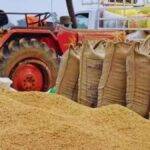Main Points In Hindi (मुख्य बातें – हिंदी में)
यहां पारिवारिक खेत को संभालने के लिए मुख्य बिंदुओं का सारांश प्रस्तुत है:
-
भूमि को समझना: सफल खेती की शुरुआत भूमि की गहराई से समझ से होती है। खेत की मिट्टी, जल निकासी और जलवायु को जानकर खेती की रणनीतियों को अनुकूलित करना आवश्यक है। यह एक निरंतर प्रक्रिया है जो मौसम परिवर्तन और मिट्टी की स्थिति के अनुसार विकसित होती है।
-
प्रबंधन योजना का निर्माण: एक स्पष्ट प्रबंधन योजना खेत के भविष्य के लिए आवश्यक है, जिसमें अल्पकालिक और दीर्घकालिक उद्देश्य, लक्ष्यों और रणनीतियों का समावेश होना चाहिए। यह योजना संसाधनों का सही प्रबंधन सुनिश्चित करती है और दिन-प्रतिदिन के संचालन के लिए एक रोडमैप प्रदान करती है।
-
वित्तीय प्रबंधन: खेत के संचालन के लिए वित्तीय प्रबंधन अत्यंत महत्वपूर्ण है। एक विस्तृत बजट बनाना, विशेषज्ञ वित्तीय सलाहकारों के साथ काम करना, और नकदी प्रवाह को बनाए रखना खेती की स्थिरता और विकास के लिए आवश्यक हैं।
-
समर्थन नेटवर्क का निर्माण: खेती की चुनौतियों का सामना करने के लिए समाज में एक मजबूत समर्थन नेटवर्क का होना महत्वपूर्ण है। स्थानीय कृषि संगठनों, कार्यशालाओं और सहकर्मी किसानों से जुड़ने से मार्गदर्शन और प्रोत्साहन मिलता है।
- पारिवारिक गतिशीलता का प्रबंधन: पारिवारिक खेतों में पारिवारिक संबंधों को बनाए रखना महत्वपूर्ण है। नियमित बैठकों, भूमिकाओं के स्पष्ट विवरण और उत्तराधिकार योजना के माध्यम से सामंजस्यपूर्ण संबंध सुनिश्चित किया जा सकता है। सहानुभूति और सम्मान के साथ पारिवारिक गतिशीलता का प्रबंधन खेत की स्थिरता को मजबूत बनाता है।
Main Points In English(मुख्य बातें – अंग्रेज़ी में)
Here are the main points from the article:


-
Understanding Your Land: Successful farming begins with a comprehensive understanding of the land, including soil structure, drainage patterns, and climate conditions. This understanding should be an ongoing process, as environmental factors can change.
-
Developing a Management Plan: A clear management plan is essential for running a family farm. This plan should outline goals, strategies, and the resources required for effective operations. It requires regular assessment and documentation to align the team with the farm’s vision.
-
Financial Management Guidance: Effective financial management is crucial for sustaining a farm. Creating a detailed budget that includes all expenses is necessary for making informed decisions and maintaining healthy cash flow. Consulting financial advisors and utilizing agricultural management software can provide valuable support.
-
Building a Strong Support Network: Establishing a supportive network can provide valuable guidance and encouragement. Engaging with local agricultural organizations, participating in community events, and leveraging online forums can improve resource access and knowledge sharing.
- Managing Family Dynamics: Effectively managing familial relationships within the farming context requires open communication and clearly defined roles. Regular meetings and boundary-setting between personal and business matters can enhance collaboration and ensure the farm’s success.
Complete News In Hindi(पूरी खबर – हिंदी में)
पारिवारिक खेत का सञ्चालन: एक मार्गदर्शन
परिचय
पारिवारिक खेत विरासत में पाना रोमांचक और चुनौतीपूर्ण है। नए युवा किसानों के लिए यह रोल भारी पड़ सकता है, लेकिन सही दिशा-निर्देशों से बदलाव के दौरान मार्गदर्शन प्राप्त किया जा सकता है। यह लेख उन महत्वपूर्ण पहलुओं पर प्रकाश डालेगा, जो एक सफल पारिवारिक खेत के प्रबंधन के लिए आवश्यक हैं।
भूमि की समझ


सफल खेती की शुरुआत जमीन को समझने से होती है। आपको अपने खेत की मिट्टी, जल निकासी, और जलवायु स्थितियों के साथ परिचय होना चाहिए। यह प्रक्रिया निरंतर है, क्योंकि मौसम, पैटर्न, और मिट्टी की स्थिति में उतार-चढ़ाव होता है। अपने खेत की निगरानी करते रहें और आवश्यकतानुसार अपनी रणनीतियों को समायोजित करें।
प्रबंधन योजना का निर्माण
एक स्पष्ट प्रबंधन योजना बनाना अत्यंत महत्वपूर्ण है। इसमें आपके लक्ष्यों, रणनीतियों, और आवश्यक संसाधनों की रूपरेखा होनी चाहिए।आपको अल्पकालिक और दीर्घकालिक उद्देश्यों को निर्धारित करना चाहिए। फसलों या पशुधन में विविधता लाना जोखिमों को कम करने और लाभप्रदता में सुधार करने में मदद कर सकता है।
वित्तीय प्रबंधन
वित्तीय प्रबंधन सफलता का एक महत्वपूर्ण पहलू है। विस्तृत बजट का विकास करें जिसमें सभी खर्चों का विवरण हो। वित्तीय सलाहकारों या लेखाकारों से सलाह लेने पर विचार करें, जो आपको प्रोत्साहन और अनुदानों के बारे में जानकारी दे सकते हैं। नकदी प्रवाह बनाए रखने के लिए अपनी आय पर नज़र रखना आवश्यक है।
समर्थन नेटवर्क का निर्माण
एक मजबूत समर्थन नेटवर्क आपको मार्गदर्शन और प्रोत्साहन प्रदान कर सकता है। स्थानीय कृषि संगठनों और सामुदायिक समूहों से जुड़ें। साथी किसानों और विशेषज्ञों के साथ नेटवर्किंग से ज्ञान का आदान-प्रदान होता है और सहयोग की संभावनाएँ बढ़ती हैं।
पारिवारिक गतिशीलता का प्रबंधन
पारिवारिक खेतों में परिवार के सदस्यों के बीच समन्वय और संचार आवश्यक है। भूमिकाएँ, जिम्मेदारियाँ और निर्णय लेने की प्रक्रियाओं पर स्पष्टता होना चाहिए। नियमित बैठकें करें और पारिवारिक गतिशीलता को सहानुभूति और सम्मान के साथ प्रबंधित करें।
निष्कर्ष
पारिवारिक खेत का प्रबंधन एक चुनौतीपूर्ण कार्य हो सकता है, लेकिन सही ज्ञान और रणनीतियों के साथ आप इसे सफलतापूर्वक संभाल सकते हैं। हमेशा याद रखें कि आप इस यात्रा में अकेले नहीं हैं; मार्गदर्शन और सहायता के लिए सलाहकारों और साथी किसानों से संपर्क करना महत्वपूर्ण है। एमिली ज़ुवर, होलब्रुक एंड मैन्टर की वरिष्ठ सहायक लेखाकार, इस क्षेत्र में सलाह और मार्गदर्शन प्रदान करने के लिए उपलब्ध हैं।
Complete News In English(पूरी खबर – अंग्रेज़ी में)
Managing a Family Farm Heritage: Key Insights and Strategies
Emily Zuver, Senior Associate Accountant at Holbrook & Manter, addresses the excitement and challenges associated with inheriting a family farm. For many young farmers stepping into this role, the responsibility can feel substantial. Whether you are new to farming or have grown up among crops and livestock, these insights can help guide you through the transition, ensuring the sustainable success of your family’s agricultural legacy.
Understanding Your Land
The foundation of successful farming begins with comprehending the land itself. Begin by familiarizing yourself with your farm’s soil composition, drainage patterns, and climate conditions. Recognizing that understanding your land is an ongoing process is crucial. Weather patterns shift, seasons change, and soil conditions fluctuate. Regularly monitor the environmental conditions of your farm to adjust your strategies as needed. Harmonizing with the land’s natural rhythms is essential for sustainable farming success.
Developing a Management Plan
To manage a family farm effectively, you need a clear management plan. This plan should outline your goals, strategies, and the resources necessary for effective agricultural operations. Start by establishing short-term and long-term objectives aligned with your vision for the farm’s future. Consider diversifying your crops or livestock to mitigate risks and enhance profitability. Investigate market trends and consumer demands to identify potential opportunities. Additionally, assess your resources, including labor, equipment, and infrastructure, to ensure you have what is needed to achieve your goals.
Documenting your management plan will provide a roadmap for day-to-day operations and long-term success. It serves as a communication tool for family members and employees, ensuring everyone is connected to the farm’s vision and mission. A well-structured management plan lays the groundwork for growth and flexibility.
Financial Management Guidance
Effective financial management is a critical aspect of running a successful farm. Start by creating a detailed budget that encompasses all expenses such as seeds, fertilizers, labor, equipment maintenance, and unforeseen costs. Having a clear financial overview allows you to make informed decisions and avoid overspending.
Consider collaborating with financial advisors or accountants who specialize in agriculture. They can provide valuable information on available grants, loans, and incentives for farmers. Explore agricultural management software that offers budgeting, expense tracking, and financial forecasting tools to streamline your financial processes.
Maintaining healthy cash flow is essential for sustaining farm operations. Monitor income from crop sales, livestock, and any additional revenue sources regularly. Periodically assess your financial performance and adjust your budget as necessary. Good financial management ensures the stability and growth of your farm.
Building a Strong Support Network
Farming presents unique challenges, but having a solid support network offers valuable guidance and encouragement. Connect with local agricultural organizations, extension services, and community groups to access resources, workshops, and advisory opportunities.
Participating in agricultural fairs, exhibitions, and conferences enables you to network with fellow farmers and industry professionals. These events provide a platform for knowledge exchange, collaboration, and innovation. Establishing relationships with experienced farmers can yield valuable insights and mentorship.
Leverage technology to engage with online forums and social media groups dedicated to agricultural communities. Connecting with like-minded individuals fosters a sense of community and provides a platform for sharing experiences and solutions. A supportive network strengthens your resilience as a farmer.
Managing Family Dynamics
Operating a family farm often involves navigating complex family dynamics. Open communication is vital for maintaining harmonious relationships and ensuring the farm’s success. Schedule regular meetings to discuss roles, responsibilities, and decision-making processes.
Establish clear boundaries between personal and professional matters. Define roles based on individual strengths and expertise, ensuring everyone contributes to the farm’s success. Develop a succession plan that outlines leadership transitions and responsibilities to ensure continuity.
Encourage family members to engage in continuous learning and development within agriculture. Supporting one another’s growth fosters unity and a shared sense of purpose. Managing family dynamics with empathy and respect strengthens the farm’s foundation.
Conclusion
While the content has touched upon essential aspects of managing a family farm, further discussion and advice are always available. Remember, you are not alone on this journey—reach out to fellow farmers, advisors, and experts for guidance and support.
Emily Zuver serves as a Senior Associate Accountant for Holbrook & Manter, a professional services firm established in 1919 that uniquely blends the resources of a large firm with the personalized attention each client deserves. You can contact Emily at www.agribusinessaccounting.com or www.HolbrookManter.com.








